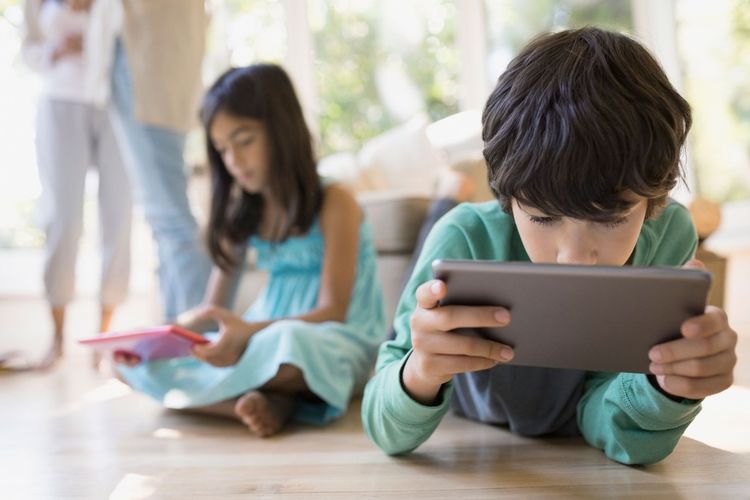Children Only at Home During the Pandemic, What Impacts on Growth and Development?
KOMPAS.com – The Covid-19 pandemic has forced schools to close. For learning and activities, children can only do it in the house. This condition worries many parents that it can affect mental health and children’s development.
Based on data from the Royal Children’s Hospital’s National Child Health Poll in June 2020, more than a third of parents reported that the pandemic has a negative impact on a child’s mental health.
In fact, nearly half of the parents surveyed said their mental health had an effect.
At least in the last few months parents have spent time accompanying their children to study at home.
This condition is exacerbated by children who cannot leave the house and play with their peers. This not only affects learning abilities, but also social and mental health.
Also read: Children who grow up with older sisters are more successful
Social isolation for children
In June 2020, a group of researchers in the UK reviewed 80 studies to find how social isolation and loneliness caused by Covid-19 can affect the mental health of previously healthy children.
As a result, social isolation increases the risk of depression and anxiety, and these effects can last several years.
The findings also concluded that loneliness has the risk of affecting children’s well-being even after the social isolation period has ended.
The impact of social isolation is very significant for children with special educational needs, especially when the support that is usually provided from school is disrupted.
Children who live in shelters with limited land for outdoor play are also vulnerable to the effects of social isolation.
 Illustration of a child playing gadgets
Illustration of a child playing gadgetsParents who only have one child also worry about their baby feeling lonely.
Also read: Social isolation is bad for health, here’s how to deal with it
Helping children play
Although it cannot completely replace interaction with peers, parents are advised to help children play.
Experts say playing improves children’s language skills (vocabulary), math knowledge, peer relationships, physical and social development, and learning new skills.
During a pandemic, play can be an effective way to deal with stress and encourage positive behavior.
When children play together, the positive effect will increase. Children can also practice and role-play real world situations safely.
Through play, children understand the world and the process of change. Parents who play with children will help these children play better with their friends.
Also read: 6 Benefits of Playing for Children, from Physical to Emotional
Invite children to play
Children need guided indoor play and free outdoor play. Playing with family members at home or friends at school is good for social play.
Digital devices are a way for children to play with their friends when they can’t meet, although the benefits of play last longer if they do live social games.
The natural environment outdoors calms and stimulates the child, and connects him with his environment and community.
At least, here are four things we can do as parents in getting our children to play.
Also read: Simple Habits That Strengthen Parent-Child Bonds
1. Take time
Set aside time each day to invite children to play. Show children that we value them for their welfare, health, and learning.
2. Make clear rules for gadget use
Talk with children about safe and responsible use of digital media and technology.
Encourage children to be actively involved in playing certain games with their friends using digital devices. But of course, screen exposure needs to be limited.
3. Playing outdoors
A study that reviewed nearly 200 studies found that spending time in parks, open spaces and forests was associated with good psychological outcomes. Therefore, occasionally invite children to do activities outside the room, but avoid crowds.
4. Become a role model for children
Children tend to imitate their parents. The best way to ensure that your child grows up healthy and happy is to set an example or role model for him or her.
More play, and quality time outside with children is also good for our health and happiness.
Also read: Travels to Nature Powerful to Eliminate Stress